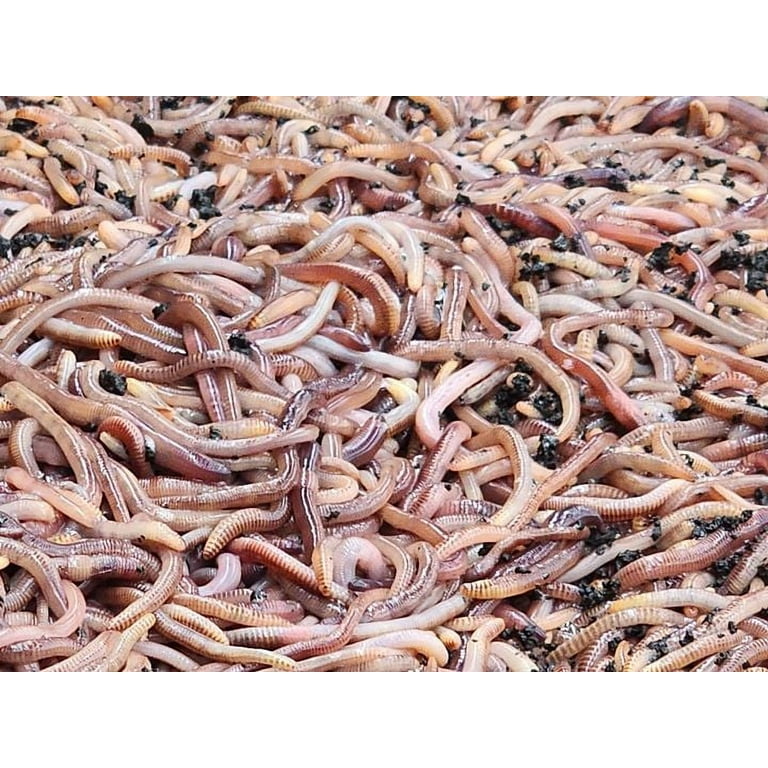Red wigglers: For vermicomposting
Red wigglers: For vermicomposting
Blog Article
Red Wigglers: The Secret to Eco-Friendly Composting
Red wigglers, clinically understood as Eisenia fetida, play an essential function in sustainable composting techniques, using a natural solution to throw away monitoring. red wigglers. These worms not just eat natural materials yet likewise transform them right into useful vermicompost, enhancing dirt wellness and promoting ecological balance.
What Are Red Wigglers?
Although lots of people are familiar with earthworms, red wigglers (Eisenia fetida) are a certain species that play a crucial function in composting. Belonging to Europe, they have adapted well to a selection of environments, particularly in breaking down raw material. Unlike common yard worms, red wigglers thrive in rich, moist environments, making them perfect for composting systems.
(red wiggler compost bin)These worms are defined by their reddish-brown pigmentation and lengthened bodies, commonly measuring between 3 to 4 inches in size. Red wigglers are epigeic worms, indicating they stay near the soil surface area and feed upon decomposing organic material. Their high reproductive rate permits populations to proliferate under optimum conditions, with the capability to increase in number every few months.
Red wigglers possess a distinct gastrointestinal system that enables them to break down natural waste efficiently. Their lasting nature makes red wigglers a useful property in green composting methods.
Benefits of Using Red Wigglers
Making use of red wigglers in composting systems uses numerous benefits that boost both the effectiveness of waste decay and the top quality of the resulting garden compost. These earthworms, scientifically called Eisenia fetida, are renowned for their extraordinary ability to eat natural waste, converting it into nutrient-rich vermicompost at an outstanding rate. Their fast digestion procedure accelerates the break down of kitchen scraps and lawn waste, significantly minimizing the moment required for composting.
Along with their efficiency, red wigglers add to improved soil structure and fertility. The vermicast created by red wigglers is rich in vital nutrients, helpful bacteria, and humic acids, every one of which boost dirt health and advertise plant growth. This nutrient-dense compost aids retain wetness and enhances aeration in the soil, cultivating a thriving ecological community for plants.
Moreover, using red wigglers for composting lowers land fill waste, adding to a more sustainable waste monitoring system. By diverting organic materials from land fills, composting with red wigglers minimizes greenhouse gas emissions, making it an environment-friendly option for eco aware individuals and communities. In general, red wigglers supply a reliable and lasting solution for composting.
Setting Up Your Worm Bin
Producing a worm container is an uncomplicated procedure that requires careful factor to consider of products and conditions to guarantee a successful setting for red wigglers. Begin by picking an appropriate container, which can be a plastic bin or wooden box, with a capability of a minimum of 10 gallons for efficient composting. Make sure the container has sufficient ventilation by drilling little holes in the lid and sides to allow airflow.
Next, prepare the bedding, which is crucial for keeping dampness and offering a habitat for the worms. Suitable materials consist of shredded paper, cardboard, coconut coir, or peat moss. Go for a bed linens depth of roughly 4-6 inches, guaranteeing it is moist however not excessively wet.
It is very important to maintain the right temperature for your worm bin, preferably between 55 ° F and 77 ° F(13 ° C and 25 ° C) Position the container in a shaded area to prevent overheating. In addition, keep the container away from straight sunshine and extreme weather to secure the worms.
Feeding Your Red Wigglers
Feeding your red wigglers is an essential facet of successful worm composting, as it straight affects their wellness and the effectiveness of your composting system - red wigglers. Red wigglers prosper on a healthy diet consisting primarily of organic waste products.
(red wigglers for sale near me)Begin with small quantities to permit the worms to eat the product fully prior to including a lot more. Screen the food decomposition procedure and change the quantity based on just how swiftly the worms are processing the waste.

Keeping Your Worm Garden Compost System
A properly maintained worm compost system is essential for taking full advantage of the effectiveness and long life of your composting initiatives. Regular surveillance of dampness levels is critical, as red wigglers thrive in a damp environment, preferably around 70% moisture. If the bed linen comes to be as well completely dry, lightly haze it with water; alternatively, if it becomes extremely wet, add completely dry bed web link linens such as shredded newspaper or cardboard to absorb excess dampness.
Temperature level control is additionally essential. Guarantee your garden compost system is kept in a shaded, ventilated area to protect against getting too hot.
Keep track of the worm populace and their activity; a thriving populace shows a healthy setting. By complying with these maintenance techniques, you can ensure a productive and sustainable worm composting system that properly recycles natural waste.

Conclusion
In conclusion, red wigglers play an important duty in eco-friendly composting by properly transforming organic waste into valuable vermicompost. Embracing the use of red wigglers represents a useful technique to boosting ecological sustainability and cultivating much healthier ecosystems.
Report this page